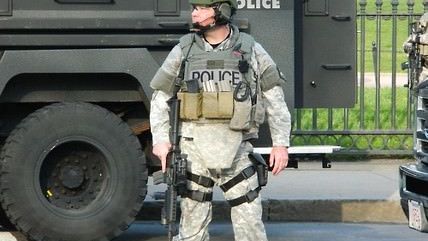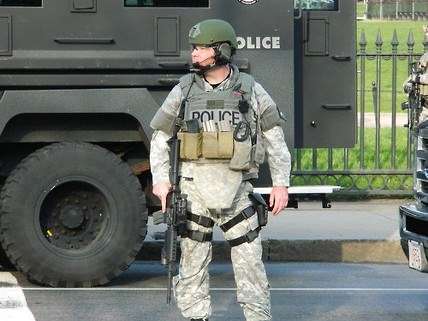Deadspin is Crowdsourcing a Police Shooting Database

As noted here on Hit & Run last week and on FiveThirtyEight.com yesterday, there is no comprehensive national database of shootings by police. Though academics like David Klinger and Jim Fisher have been on the case for years, there hasn't been a coordinated effort to compile all the necessary data into one place, until now.

As part of its coverage of the unrest in Ferguson, MO, following the police shooting death of unarmed teenager, Michael Brown, Deadspin, the hugely popular Gawker Media-affiliated sports and pop culture website, is asking its readers to help crowdsource information on police shootings from 2011-2013.
For a few hours today, they were allowing their readers to update a Google doc spreadsheet, which proved unwieldly due to a limit on the number of concurrent users accessing the doc. They have since moved to soliciting info via a submission form on the site.
The expected beta-testing kinks aside, you can check out their submissions so far and see they're off to a pretty impressive start.
Hoping to avoid being deluged with redundant or inaccurate data, they have provided these guidelines:
- Using Google's search tools, isolate a single day (e.g. Jan. 1, 2011, to Jan. 1, 2011) and search for the term "police involved shooting" (don't use quotation marks). Use Chrome's Incognito mode when searching to ensure you aren't getting local results.
- Read each link on the first 10 pages of results; for any instances of shootings involving a police officer, log them in the spreadsheet.
- We're looking at 2011, 2012, and 2013, and tracking date, name, age, gender, race/ethnicity, injured/killed, armed/unarmed, city, county, state, agency, number of shots, a brief summary, and a link to a story about the incident are to be filled out as best as possible given the information in all stories about the incident.
- Before starting in, take a look at the submissions here and pick a day that no one has begun. Remember, we're starting off looking at just the past three years.
- Often, the first day of reports will not have personal details, and a second search of subsequent days will fill in more of the story.
- A later death, after a person is hospitalized in a police-involved shooting, is considered a death for our purposes.
- We are looking for any incidence of a police officer shooting and hitting another person.
- We are not looking for incidences of police officers discharging their weapons and hitting no one. In a perfect world these would be tracked, since often the only difference is that the shot missed, but these incidents are not as thoroughly reported and would probably bias the data.
- Please keep the data as neat as possible. Work within specific months, make sure you're in the correct year, keep the columns clean and add peripheral information in the Summary portion, etc.
Considering the sheer volume of highly personal information the government collects and analyzes (often without consent), it is simply outrageous that the public has to struggle to find even the raw data tallying something as vital as government agents shooting citizens.
Deadspin's efforts at providing transparency on police shootings are a great example of public volunteerism stepping up to fill a void deliberately created by the government, which would rather not have this conversation.
Now, who will be the first to step up and crowdsource the data behind police shooting dogs?


Show Comments (17)